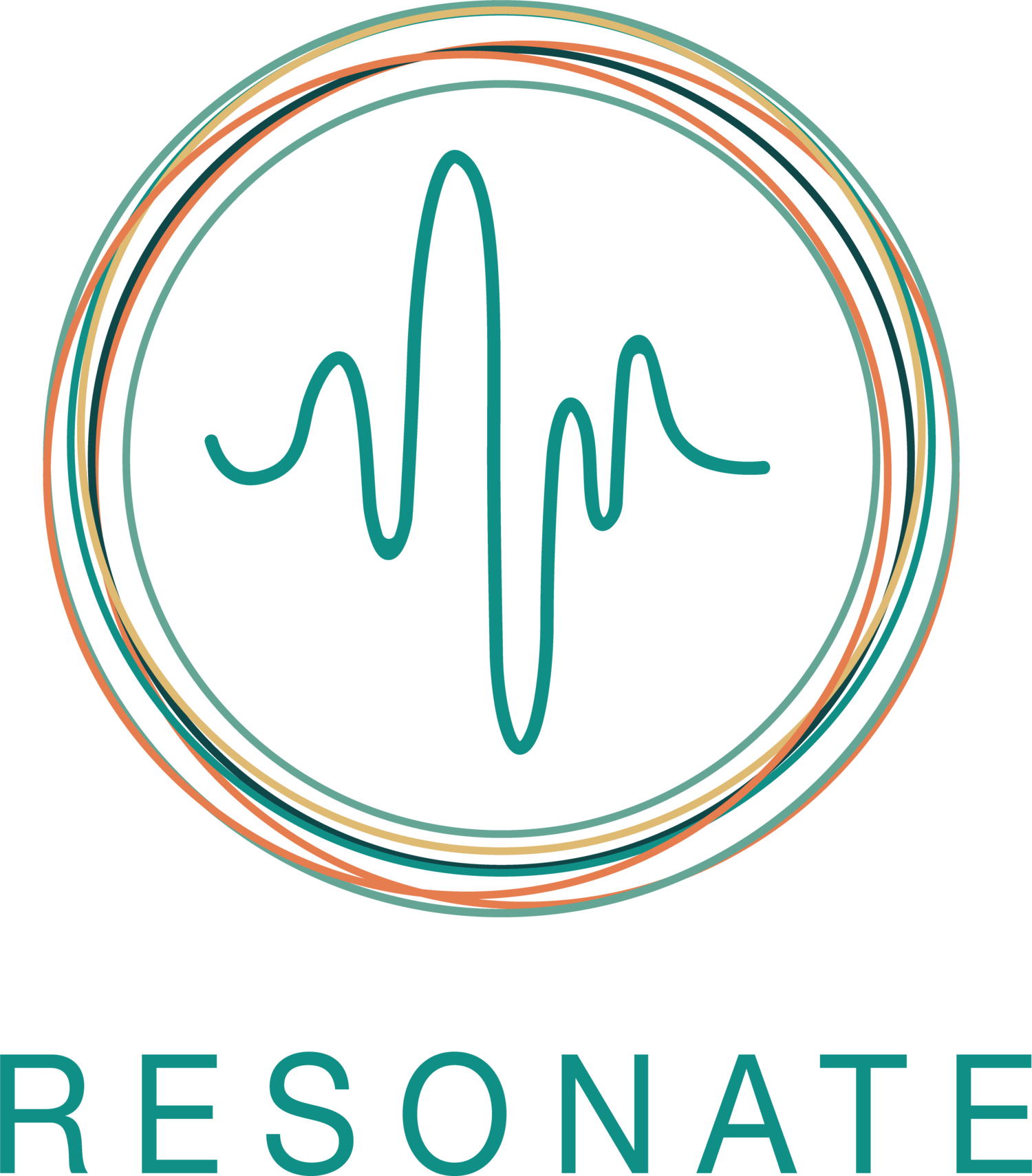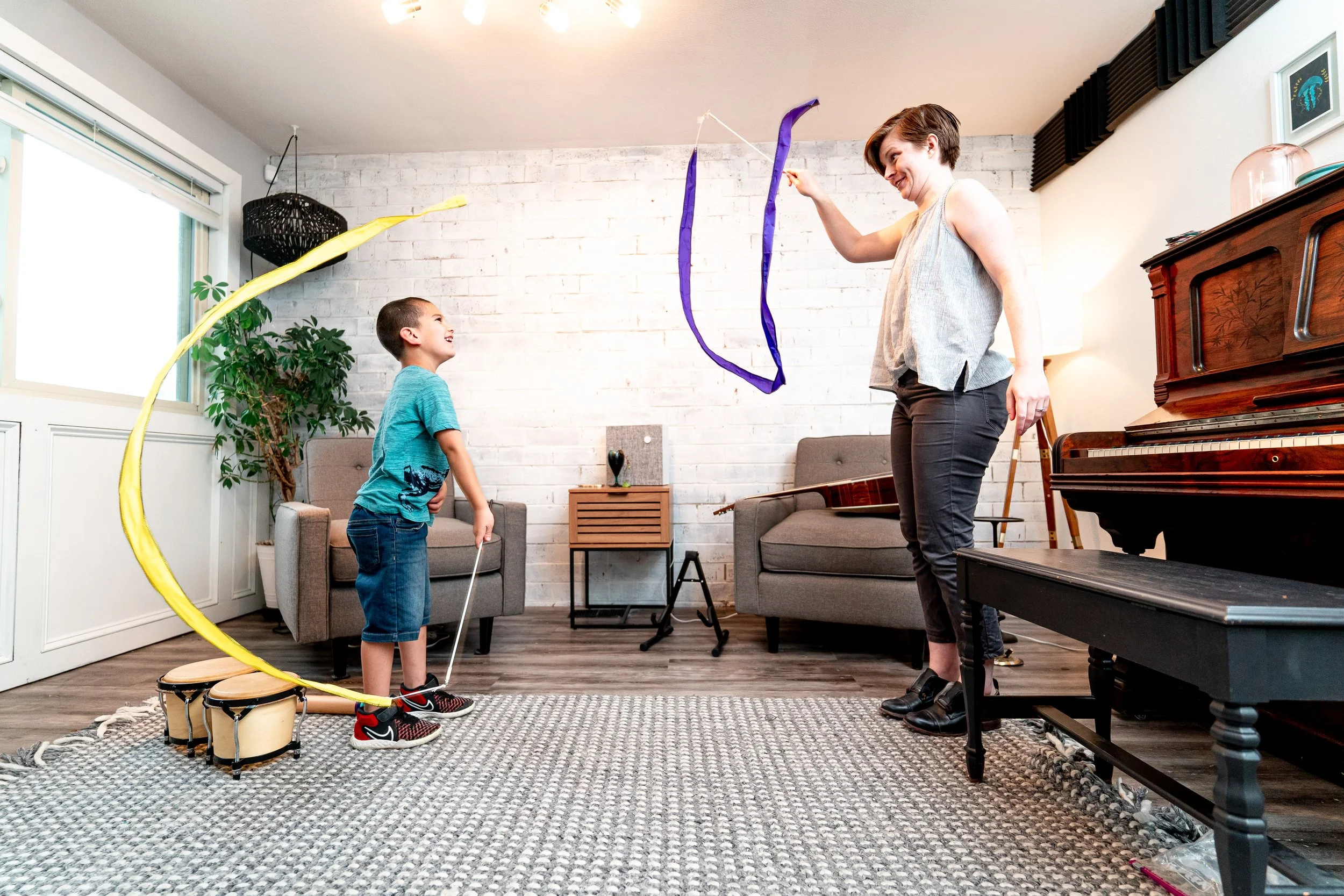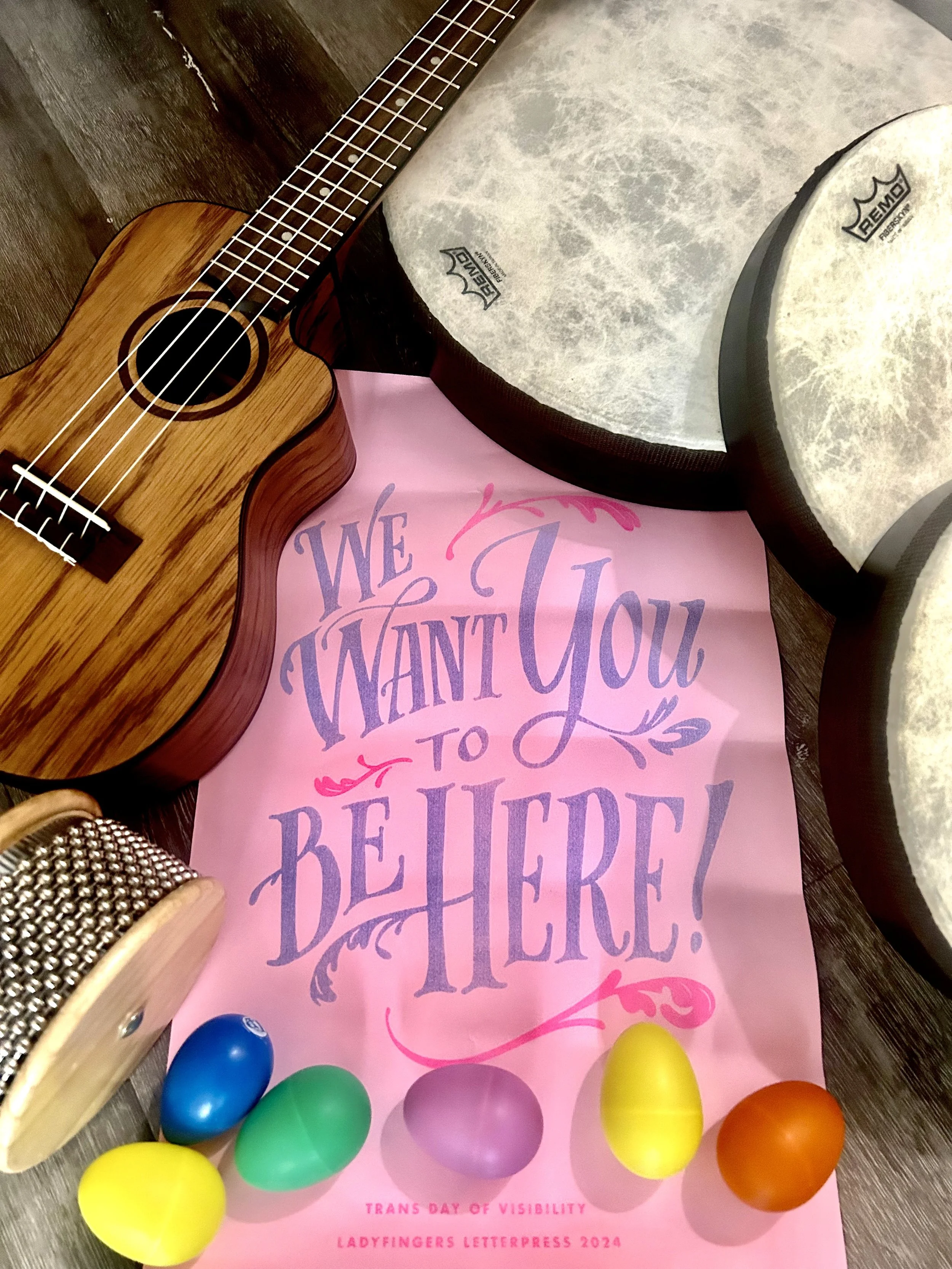
Resonate Music Therapy Blog
Your source for learning about community events, business updates, disability rights, and helpful information for navigating life.
Holistic Speech Therapy: Why Prioritizing Regulation, Self-Advocacy, and Autonomy Leads to Better Communication Outcomes
At Resonate Music Therapy here in Colorado Springs, speech therapy is about far more than mastering sounds/words. Clients and their families are welcomed into a neuroaffirmative, strengths-based environment where connection, safety, and authentic self-expression come first. Each person’s unique communication style—whether it’s spoken language, AAC, echolalia, gestures, signing, typing, writing —is valued and supported as a valid way to connect and belong.
We also trust in decades of research and lived experience! Evidence-based practice is critical, and we understand that research+lived experience shows that effective communication can only happen consistently when someone feels aligned internally with themselves/their body, as well as their environment. In this post, we’ll outline why regulation (as well as self-advocacy and autonomy) are all critical to robust and effective communication- from the speech therapy room to well beyond! The goal is always to strive towards communication that’s meaningful to that person, connects them to their environment and loved ones, and allows them to share their internal world!
How does fostering regulation, self-advocacy skills, and individual autonomy, all lead to better speech, language, and communication outcomes? We’ll first dive into regulation.
Mythbusting About AAC (Augmentative and Alternative Communication)!
What is AAC?
AAC stands for augmentative and alternative communication. This includes tools and strategies that provide additional means of communication (aside from just verbal speech). AAC can be low-tech (PECS, picture boards, writing, alphabet boards), mid-tech (battery-operated but have limited function/vocabulary), and high-tech (speech-generating devices with endless vocabulary). AAC can mean an AAC device, but that’s not the only AAC option.
Why AAC? There can be so many genuine barriers to consistent, clear, and robust verbal communication. Whatever the barrier, AAC can equip someone to more effectively communicate their internal world, no matter the setting. At Resonate, we honor holistic communication- communication of any kind is seen/heard, as our speech therapists and music therapists assist clients in expanding their speech and communication skills. Now- on to the myths!
Our Approach To Speech Therapy: Holistic/Total Care Within the Treatment Room
Here at Resonate, we are driven to spread meaningful, useful, and neurodiversity affirming information about our services with our community. Whether you’re entirely new to speech therapy or it’s a familiar concept, we know that there can be many questions and feelings that arise when you or a loved one are seeking support from a speech therapist. This post is essentially an open conversation about our therapeutic approach- we interviewed our Speech-Language Pathologist (SLP) and our speech therapy clinical fellow to share what speech therapy looks like at Resonate!
The Mind Body Connection: How We Can Incorporate the Body in Therapy and Life
In this post, we’ll provide some background about the mind-body connection and demonstrate how everyone can benefit from improving this connection. We’ll also explore a couple of different therapeutic options for strengthening this connection, with an emphasis on how they can benefit anyone experiencing a disconnection from their body.
Pre-literacy Skills (And Why Learning Our Letters Isn’t Enough for Reading)
Often when we think of learning to read, we think about the letters and how they come together. One of the first things parents focus on teaching their children is the ABCs. However, did you know that early literacy (aka reading) skills involve SO much more than just learning the alphabet?
Super Jordan: a free kids book about stimming, masking, and living authentically as an autistic person
We are thrilled to share this resource, written by the phenomenal Olive Jaudes, MT-BC! It’s an accessible and approachable resource for autistic children (and autistic folks of all ages) to better understand masking and stimming. It’s a great resource for all people to better understand stimming and how we can best support safe, regulating stimming.
Is My Child's Speech and Language Development on Track? A Brief Guide for Parents of Children Birth-Age 6
At Resonate Music Therapy, we understand that loved ones, parents, and guardians, want their children to be happy, fulfilled people who can clearly communicate wants, protests, thoughts, ideas, advocate for themselves, and generally share their internal world with others!
A crucial area of development in this regard is communication. At Resonate Music Therapy in Colorado Springs, we’re here to support children's communication skills at all ages and levels! Communication includes receptive language (how a child understands what is said), expressive language (how they use words and formulate sentences), speech sound production (how they produce sounds and combine them to formulate words), social language, and pre-literacy/reading skills. Let's explore the key milestones in communication development from birth through age 6 - these are based on Linguisystems Guide to Communication Milestones, and reviewed by our phenomenal speech therapist, Sarah Killian.
Gestalt Language Processing: What It Is and How Music Therapy Can Help
Here at Resonate Music Therapy, we work extensively with autistic and neurodivergent individuals, some of which are also gestalt language processors (GLP). So what exactly does that mean? Read on to learn what it means to be a GLP, and how we work with GLPers here at Resonate.




















